Mohamed Bennai
RobQFL: Robust Quantum Federated Learning in Adversarial Environment
Sep 05, 2025Abstract:Quantum Federated Learning (QFL) merges privacy-preserving federation with quantum computing gains, yet its resilience to adversarial noise is unknown. We first show that QFL is as fragile as centralized quantum learning. We propose Robust Quantum Federated Learning (RobQFL), embedding adversarial training directly into the federated loop. RobQFL exposes tunable axes: client coverage $\gamma$ (0-100\%), perturbation scheduling (fixed-$\varepsilon$ vs $\varepsilon$-mixes), and optimization (fine-tune vs scratch), and distils the resulting $\gamma \times \varepsilon$ surface into two metrics: Accuracy-Robustness Area and Robustness Volume. On 15-client simulations with MNIST and Fashion-MNIST, IID and Non-IID conditions, training only 20-50\% clients adversarially boosts $\varepsilon \leq 0.1$ accuracy $\sim$15 pp at $< 2$ pp clean-accuracy cost; fine-tuning adds 3-5 pp. With $\geq$75\% coverage, a moderate $\varepsilon$-mix is optimal, while high-$\varepsilon$ schedules help only at 100\% coverage. Label-sorted non-IID splits halve robustness, underscoring data heterogeneity as a dominant risk.
QFAL: Quantum Federated Adversarial Learning
Feb 28, 2025
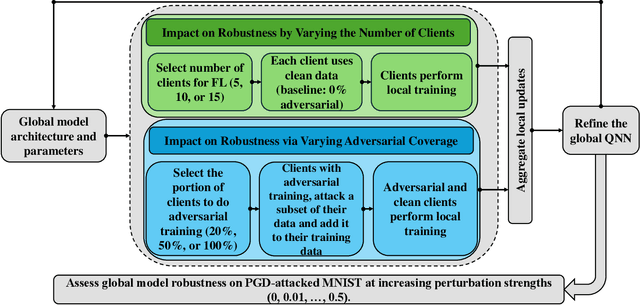
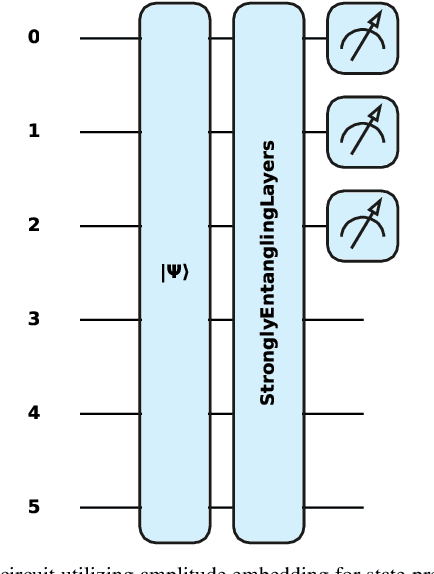
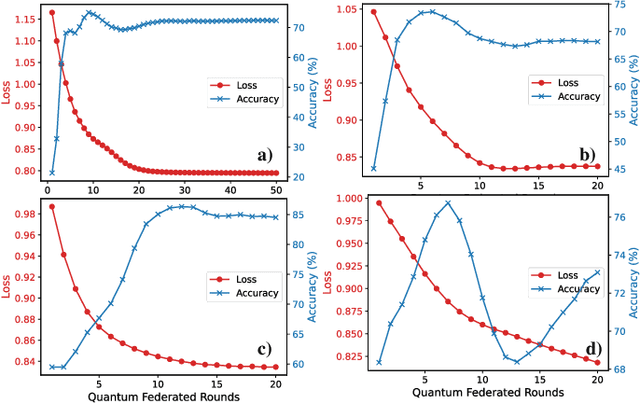
Abstract:Quantum federated learning (QFL) merges the privacy advantages of federated systems with the computational potential of quantum neural networks (QNNs), yet its vulnerability to adversarial attacks remains poorly understood. This work pioneers the integration of adversarial training into QFL, proposing a robust framework, quantum federated adversarial learning (QFAL), where clients collaboratively defend against perturbations by combining local adversarial example generation with federated averaging (FedAvg). We systematically evaluate the interplay between three critical factors: client count (5, 10, 15), adversarial training coverage (0-100%), and adversarial attack perturbation strength (epsilon = 0.01-0.5), using the MNIST dataset. Our experimental results show that while fewer clients often yield higher clean-data accuracy, larger federations can more effectively balance accuracy and robustness when partially adversarially trained. Notably, even limited adversarial coverage (e.g., 20%-50%) can significantly improve resilience to moderate perturbations, though at the cost of reduced baseline performance. Conversely, full adversarial training (100%) may regain high clean accuracy but is vulnerable under stronger attacks. These findings underscore an inherent trade-off between robust and standard objectives, which is further complicated by quantum-specific factors. We conclude that a carefully chosen combination of client count and adversarial coverage is critical for mitigating adversarial vulnerabilities in QFL. Moreover, we highlight opportunities for future research, including adaptive adversarial training schedules, more diverse quantum encoding schemes, and personalized defense strategies to further enhance the robustness-accuracy trade-off in real-world quantum federated environments.
Comparative Performance Analysis of Quantum Machine Learning Architectures for Credit Card Fraud Detection
Dec 27, 2024Abstract:As financial fraud becomes increasingly complex, effective detection methods are essential. Quantum Machine Learning (QML) introduces certain capabilities that may enhance both accuracy and efficiency in this area. This study examines how different quantum feature map and ansatz configurations affect the performance of three QML-based classifiers-the Variational Quantum Classifier (VQC), the Sampler Quantum Neural Network (SQNN), and the Estimator Quantum Neural Network (EQNN)-when applied to two non-standardized financial fraud datasets. Different quantum feature map and ansatz configurations are evaluated, revealing distinct performance patterns. The VQC consistently demonstrates strong classification results, achieving an F1 score of 0.88, while the SQNN also delivers promising outcomes. In contrast, the EQNN struggles to produce robust results, emphasizing the challenges presented by non-standardized data. These findings highlight the importance of careful model configuration in QML-based financial fraud detection. By showing how specific feature maps and ansatz choices influence predictive success, this work guides researchers and practitioners in refining QML approaches for complex financial applications.
LEP-QNN: Loan Eligibility Prediction Using Quantum Neural Networks
Dec 04, 2024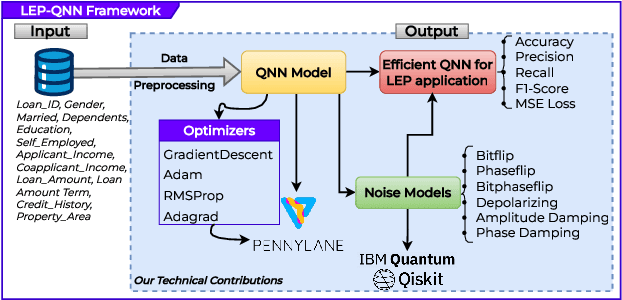


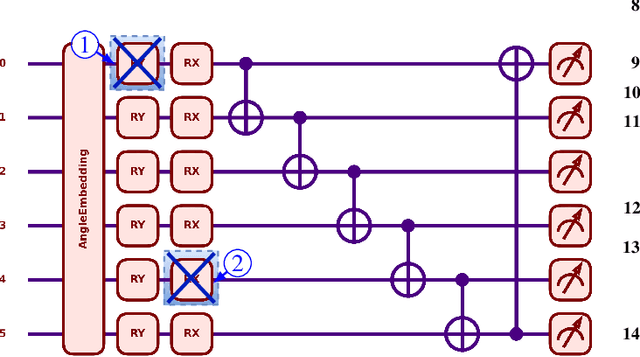
Abstract:Predicting loan eligibility with high accuracy remains a significant challenge in the finance sector. Accurate predictions enable financial institutions to make informed decisions, mitigate risks, and effectively adapt services to meet customer needs. However, the complexity and the high-dimensional nature of financial data have always posed significant challenges to achieving this level of precision. To overcome these issues, we propose a novel approach that employs Quantum Machine Learning (QML) for Loan Eligibility Prediction using Quantum Neural Networks (LEP-QNN).Our innovative approach achieves an accuracy of 98% in predicting loan eligibility from a single, comprehensive dataset. This performance boost is attributed to the strategic implementation of a dropout mechanism within the quantum circuit, aimed at minimizing overfitting and thereby improving the model's predictive reliability. In addition, our exploration of various optimizers leads to identifying the most efficient setup for our LEP-QNN framework, optimizing its performance. We also rigorously evaluate the resilience of LEP-QNN under different quantum noise scenarios, ensuring its robustness and dependability for quantum computing environments. This research showcases the potential of QML in financial predictions and establishes a foundational guide for advancing QML technologies, marking a step towards developing advanced, quantum-driven financial decision-making tools.
QFNN-FFD: Quantum Federated Neural Network for Financial Fraud Detection
Apr 03, 2024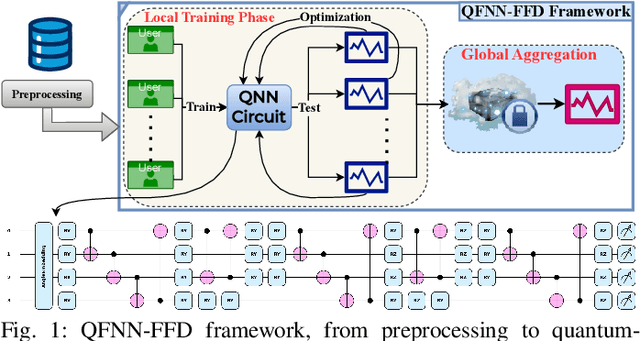
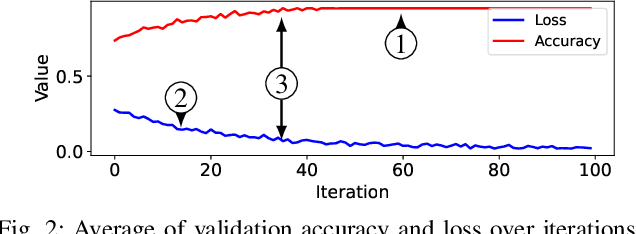
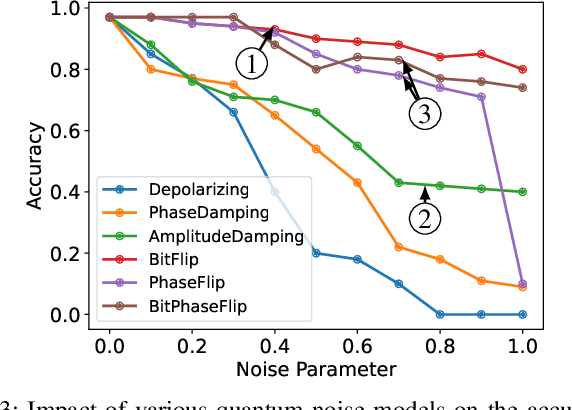

Abstract:This study introduces the Quantum Federated Neural Network for Financial Fraud Detection (QFNN-FFD), a cutting-edge framework merging Quantum Machine Learning (QML) and quantum computing with Federated Learning (FL) to innovate financial fraud detection. Using quantum technologies' computational power and FL's data privacy, QFNN-FFD presents a secure, efficient method for identifying fraudulent transactions. Implementing a dual-phase training model across distributed clients surpasses existing methods in performance. QFNN-FFD significantly improves fraud detection and ensures data confidentiality, marking a significant advancement in fintech solutions and establishing a new standard for privacy-focused fraud detection.
FedQNN: Federated Learning using Quantum Neural Networks
Mar 16, 2024



Abstract:In this study, we explore the innovative domain of Quantum Federated Learning (QFL) as a framework for training Quantum Machine Learning (QML) models via distributed networks. Conventional machine learning models frequently grapple with issues about data privacy and the exposure of sensitive information. Our proposed Federated Quantum Neural Network (FedQNN) framework emerges as a cutting-edge solution, integrating the singular characteristics of QML with the principles of classical federated learning. This work thoroughly investigates QFL, underscoring its capability to secure data handling in a distributed environment and facilitate cooperative learning without direct data sharing. Our research corroborates the concept through experiments across varied datasets, including genomics and healthcare, thereby validating the versatility and efficacy of our FedQNN framework. The results consistently exceed 86% accuracy across three distinct datasets, proving its suitability for conducting various QML tasks. Our research not only identifies the limitations of classical paradigms but also presents a novel framework to propel the field of QML into a new era of secure and collaborative innovation.
Quantum Support Vector Machine for Prostate Cancer Detection: A Performance Analysis
Mar 12, 2024



Abstract:This study addresses the urgent need for improved prostate cancer detection methods by harnessing the power of advanced technological solutions. We introduce the application of Quantum Support Vector Machine (QSVM) to this critical healthcare challenge, showcasing an enhancement in diagnostic performance over the classical Support Vector Machine (SVM) approach. Our study not only outlines the remarkable improvements in diagnostic performance made by QSVM over the classic SVM technique, but it delves into the advancements brought about by the quantum feature map architecture, which has been carefully identified and evaluated, ensuring it aligns seamlessly with the unique characteristics of our prostate cancer dataset. This architecture succeded in creating a distinct feature space, enabling the detection of complex, non-linear patterns in the data. The findings reveal not only a comparable accuracy with classical SVM ($92\%$) but also a $7.14\%$ increase in sensitivity and a notably high F1-Score ($93.33\%$). This study's important combination of quantum computing in medical diagnostics marks a pivotal step forward in cancer detection, offering promising implications for the future of healthcare technology.
Brain Tumor Diagnosis Using Quantum Convolutional Neural Networks
Jan 30, 2024

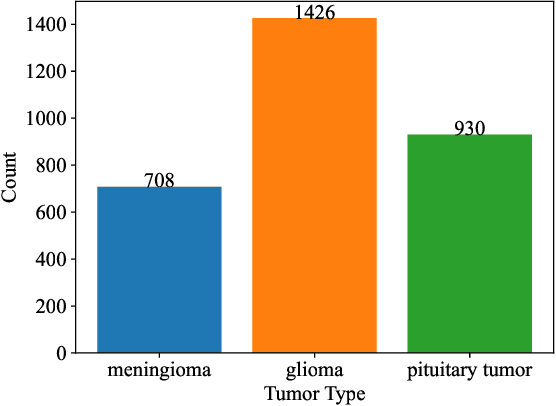
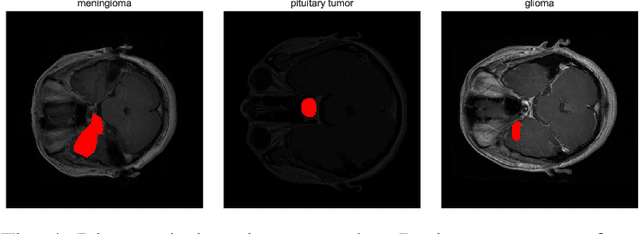
Abstract:Integrating Quantum Convolutional Neural Networks (QCNNs) into medical diagnostics represents a transformative advancement in the classification of brain tumors. This research details a high-precision design and execution of a QCNN model specifically tailored to identify and classify brain cancer images. Our proposed QCNN architecture and algorithm have achieved an exceptional classification accuracy of 99.67%, demonstrating the model's potential as a powerful tool for clinical applications. The remarkable performance of our model underscores its capability to facilitate rapid and reliable brain tumor diagnoses, potentially streamlining the decision-making process in treatment planning. These findings strongly support the further investigation and application of quantum computing and quantum machine learning methodologies in medical imaging, suggesting a future where quantum-enhanced diagnostics could significantly elevate the standard of patient care and treatment outcomes.
Financial Fraud Detection using Quantum Graph Neural Networks
Sep 03, 2023Abstract:Financial fraud detection is essential for preventing significant financial losses and maintaining the reputation of financial institutions. However, conventional methods of detecting financial fraud have limited effectiveness, necessitating the need for new approaches to improve detection rates. In this paper, we propose a novel approach for detecting financial fraud using Quantum Graph Neural Networks (QGNNs). QGNNs are a type of neural network that can process graph-structured data and leverage the power of Quantum Computing (QC) to perform computations more efficiently than classical neural networks. Our approach uses Variational Quantum Circuits (VQC) to enhance the performance of the QGNN. In order to evaluate the efficiency of our proposed method, we compared the performance of QGNNs to Classical Graph Neural Networks using a real-world financial fraud detection dataset. The results of our experiments showed that QGNNs achieved an AUC of $0.85$, which outperformed classical GNNs. Our research highlights the potential of QGNNs and suggests that QGNNs are a promising new approach for improving financial fraud detection.
Quantum State Tomography using Quantum Machine Learning
Aug 20, 2023Abstract:Quantum State Tomography (QST) is a fundamental technique in Quantum Information Processing (QIP) for reconstructing unknown quantum states. However, the conventional QST methods are limited by the number of measurements required, which makes them impractical for large-scale quantum systems. To overcome this challenge, we propose the integration of Quantum Machine Learning (QML) techniques to enhance the efficiency of QST. In this paper, we conduct a comprehensive investigation into various approaches for QST, encompassing both classical and quantum methodologies; We also implement different QML approaches for QST and demonstrate their effectiveness on various simulated and experimental quantum systems, including multi-qubit networks. Our results show that our QML-based QST approach can achieve high fidelity (98%) with significantly fewer measurements than conventional methods, making it a promising tool for practical QIP applications.
 Add to Chrome
Add to Chrome Add to Firefox
Add to Firefox Add to Edge
Add to Edge